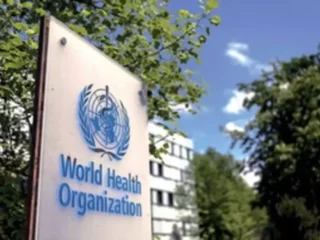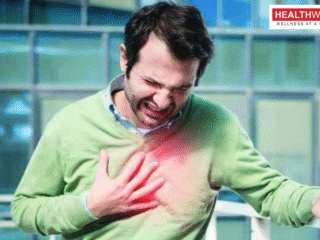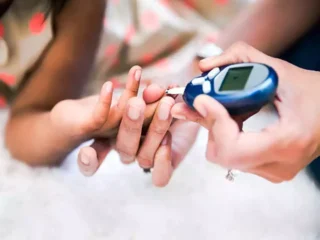New Delhi, 13 October, 2025: Winter is a season of cozy sweaters, hot drinks, and festive gatherings — but it’s also a time when heart attacks spike. Research consistently shows a rise in cardiovascular events during colder months, affecting both people with known heart conditions and those who appear healthy. Understanding the reasons behind this seasonal risk and taking proactive steps can be lifesaving.
Why Winter Poses a Greater Risk for Heart Attacks
Several factors contribute to the increased heart attack risk in winter:
1. Cold-Induced Blood Vessel Constriction
Exposure to cold causes blood vessels to narrow, a natural response to preserve body heat. While this helps maintain core temperature, it also raises blood pressure and increases the workload on the heart. Constricted arteries make it harder for blood to flow, increasing the chance of blockages that can trigger a heart attack.
2. Blood Thickening and Clotting
Winter weather can make blood more viscous, meaning it flows less easily. Thicker blood is more prone to clotting, which can obstruct coronary arteries and lead to a myocardial infarction.
3. Seasonal Infections and Inflammation
Winter sees a rise in flu, pneumonia, and other infections. Infections create systemic inflammation and place extra stress on the cardiovascular system. They can destabilize plaque in arteries, increasing the likelihood of a heart attack, especially in those with pre-existing heart conditions.
4. Lifestyle Changes
Shorter days, colder temperatures, and holiday festivities can affect daily routines:
- Reduced physical activity due to cold weather
- Unhealthy eating habits with high-calorie, salty, and sugary foods
- Increased stress from holiday planning, work deadlines, and family obligations
- Higher alcohol consumption during celebrations
These lifestyle shifts collectively strain the heart and can elevate winter risk.
5. Sudden Exertion
Simple activities like shoveling snow, walking in icy conditions, or brisk outdoor exercise can suddenly increase heart workload. Cold-induced vasoconstriction combined with physical exertion makes the heart work harder and may trigger a heart attack in vulnerable individuals.
Recognizing Early Signs of Heart Trouble
Early recognition of heart attack symptoms is critical. Classic signs include:
- Chest pain or pressure, sometimes radiating to the arm, jaw, or back
- Shortness of breath
- Dizziness or lightheadedness
- Cold sweats
- Nausea or vomiting
Note: Women, older adults, and people with diabetes may experience atypical symptoms, such as fatigue or indigestion, instead of classic chest pain. Don’t delay medical attention if you suspect a heart problem — even mild symptoms warrant evaluation.
Expert Tips to Protect Your Heart This Winter
While you cannot control the weather, you can reduce your winter heart attack risk with practical measures.
1. Stay Warm and Layered
- Wear multiple layers to retain body heat.
- Protect extremities with gloves, hats, and scarves.
- Limit exposure to extreme cold and avoid sudden outdoor exertion.
Keeping warm helps prevent blood vessel constriction and reduces cardiac strain.
2. Maintain Regular Physical Activity
- Engage in indoor workouts like walking on a treadmill, yoga, or resistance training.
- If exercising outside, warm up gradually and avoid overexertion.
- Aim for 150 minutes of moderate activity per week to keep your heart strong.
Physical activity helps maintain cardiovascular fitness and offsets winter-related risk factors.
3. Eat Heart-Healthy Foods
- Focus on fruits, vegetables, whole grains, lean proteins, and healthy fats.
- Limit high-salt, fried, and processed foods that raise blood pressure.
- Moderate portion sizes during holiday meals to avoid sudden weight gain.
A balanced diet supports heart health and prevents winter-induced stress on the cardiovascular system.
4. Manage Stress and Emotions
- Practice mindfulness, meditation, or deep breathing exercises.
- Plan holiday activities to minimize stress and avoid overcommitment.
- Stay socially connected to reduce emotional strain.
Stress triggers elevated cortisol levels, which can increase blood pressure and heart workload.
5. Monitor Your Health Closely
- Check blood pressure and cholesterol regularly.
- Maintain blood sugar levels, especially for diabetics.
- Take prescribed medications consistently.
- Get vaccinated against flu and pneumonia to prevent infections that stress the heart.
Regular monitoring allows early detection of risk factors and prevents complications.
6. Avoid Excess Alcohol and Smoking
- Excess alcohol raises blood pressure and heart rate.
- Smoking damages blood vessels and reduces oxygen supply to the heart.
- Limiting or eliminating these habits significantly reduces winter heart attack risk.
7. Be Mindful During Physical Activity
- Avoid heavy exertion in extremely cold weather, like shoveling snow.
- Warm up slowly before outdoor activity.
- Stay hydrated, even in cold weather, as dehydration can strain the heart.
High-Risk Groups Need Extra Precaution
Certain individuals should take extra care during winter:
- Older adults: Reduced thermoregulation and pre-existing conditions increase vulnerability.
- People with heart disease, hypertension, or diabetes: Cold stress amplifies existing risks.
- Sedentary individuals and smokers: Lifestyle factors can exacerbate winter heart strain.
High-risk individuals should consult their healthcare provider for personalized advice and avoid sudden exposure to cold or overexertion.
Seasonal Habits for Heart Protection
- Dress appropriately for winter conditions, both indoors and outdoors.
- Exercise consistently, but adjust intensity based on weather.
- Eat a heart-healthy diet and avoid holiday overindulgence.
- Reduce stress through relaxation techniques.
- Stay on top of medical checkups, blood pressure, and cholesterol.
- Vaccinate against flu and pneumonia to reduce infection-related heart risks.
Simple changes in daily habits can significantly reduce winter cardiovascular events.
When to Seek Emergency Help
If you or someone around you shows signs of a heart attack:
- Call emergency services immediately.
- Do not attempt to drive yourself to the hospital.
- Chew an aspirin only if recommended by a healthcare provider and not allergic.
- Keep emergency contacts and medications accessible at all times.
Prompt intervention saves lives, especially during winter when risk is elevated.
Winter Heart Safety is Achievable
Cold weather doesn’t have to mean heightened danger for your heart. Understanding the connection between winter conditions and cardiovascular risk allows you to take preventive measures that significantly reduce the likelihood of a heart attack.
By staying warm, maintaining activity, eating right, managing stress, and monitoring your health, you can enjoy winter safely and protect your most vital organ. Remember: heart attacks can happen to anyone, but awareness and preparation make all the difference.








